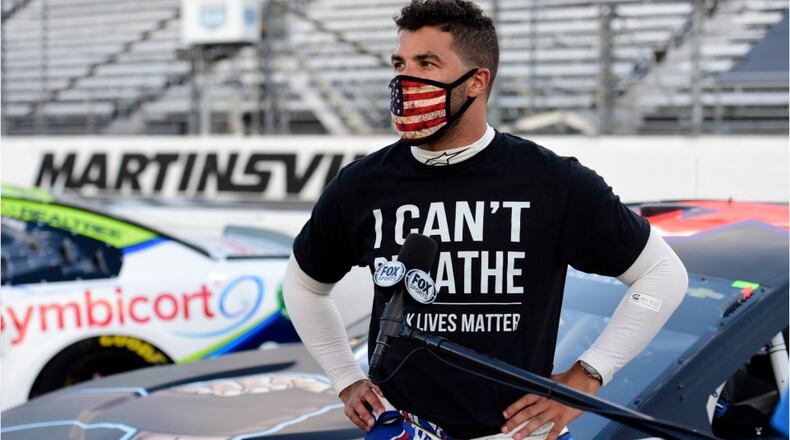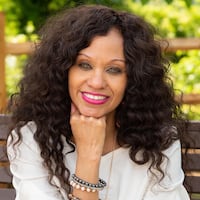Atlantans shared their personal take on race and inclusiveness in a virtual conversation on social justice that included NASCAR driver Darrell Wallace Jr. and people living around the U.S.
More than 100 people joined the talk Tuesday in the fourth installment of the Coca-Cola series Together We Must: A Conversation in partnership with The King Center, The National Center for Civil and Human Rights, Civic Dinners and Equitable Dinners.
Wallace and Paralympic track and field athlete Roderick Townsend of Team USA kicked off the event in a 30-minute conversation with Jill Savitt, president and CEO of The National Center for Civil and Human Rights.
Wallace, better known as “Bubba,” is the only Black driver in NASCAR’s top division and in June successfully called on NASCAR to ban the Confederate flag from its events and properties. He said that while the company is making strides to become more diverse and inclusive, it has a long way to go.
Mandated sensitivity and diversity training for employees and team members throughout NASCAR has sparked more open conversations on different cultures and backgrounds, he said.
Townsend, a double gold medalist for the long jump and high jump in the Rio 2016 Paralympic Games, said he experienced prejudiced in his career for both his disability and race.
“I quickly realized that so many companies wanted me to be my disability,” he said, of prospective sponsors. And others thought he didn’t appear to be disabled enough, he said.
The Paralympian, now sponsored by Coca-Cola, said he has permanent nerve damage in his right arm after suffering a broken collar bone at birth.
Following their appearances, the rest of the virtual attendees were divided into groups of four to eight people for more discussion including how they could better practice inclusion in their own lives. A group attended by The Atlanta Journal-Constitution included three of women of color who said they believe Black people were burdened and fatigued by some non-minorities’ who were unaware of everyday racism before the social unrest of 2020.
Lena Morris, a director of training and development in Fisher, Indiana said she has been frank with work colleagues about race, including when explaining changes in travels plans to communities in the U.S. where she didn’t feel safe as a Black woman.
“I now realize the impact of me always having to be that voice to raise awareness and keep it in the forefront, and not let those moments pass,” Morris said. “It’s exhausting. But I cannot be true to myself if I don’t bring it up.”
Duluth resident Karlene Gordon, who works as a diversity and inclusion officer at Ameris Bank, said listening is essential when addressing inclusivity.
“You need to ask people what is that you want,” Gordon said. “If you invite them to a party and ask them to dance and don’t want to know what song they want to hear. It’s kind of disingenuous to me."
Gordon said asking questions to foster inclusiveness gets all parties thinking on a deeper level.
“People want to be seen and heard,” she said. “If you ask more questions, you get to the core of the issue and it’s worth it.”
Coca-Cola plans to host more conversations on race and social justice in November. Dr. Bernice King will be guest speaking on Nov. 10 when the topic will be “understanding race.” A conversation on “allyship” is planned for Nov. 17. Allyship is a supportive relationship with the members of a marginalized or mistreated group to which one does not belong. The guest speaker for that event hasn’t been announced.
How to sign-up for the Coca-Cola series
The Coca-Cola series Together We Must: A Conversation is held in partnership with The King Center, The National Center for Civil and Human Rights, Civic Dinners and Equitable Dinners. Sign-up for the remaining conversations on the Civic Dinners website: civicdinners.com/togetherwemust
About the Author
The Latest
Featured



